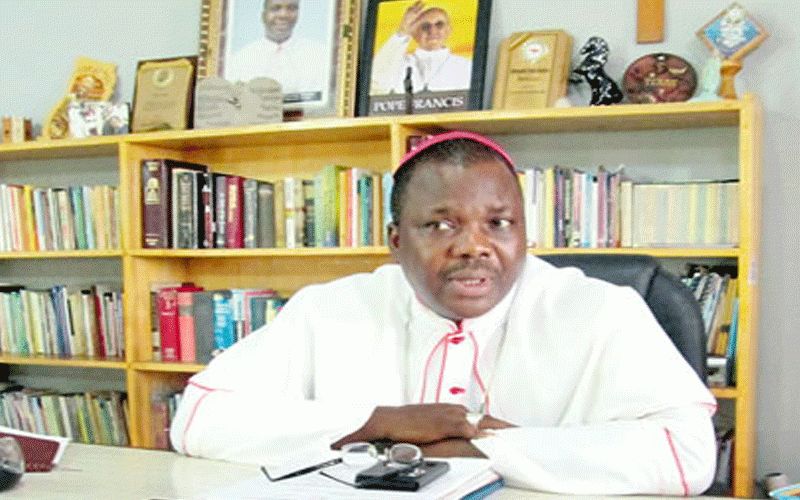With the regional communication offices in place, the Nigerian Prelate has expressed optimism that the Church in Africa can have the possibility to be heard through some collective forums and “contribute to the discourse on the natural family, the traditional family and the Christian family all over the world.”
He shared with ACI Africa about his belief that “there is a new awareness, a new determination in SECAM and in the standing committee of SECAM to strengthen our communication outfit, communication platforms and to encourage our communication practitioners even more.”
He went on to encourage the people of God in Africa to embrace and engage digital media, saying that the Church is no longer in the habit of shying away from the use of social media.
“It is important for the Church in Africa to show interest in those who practice media, both the professionals and the mere practitioners, those who use social media, the new incomers who don't have any professional skills but have all the tools at their disposition,” the Nigerian Prelate who specialized in communication during his post graduate studies in Rome told ACI Africa.
He added, “It's also important for even the church to have the humility to be taught in a way by these young people and these newcomers who have all the skills of communication and new ways of uprooting issues of the world today.”
(Story continues below)
The 58-year-old Church leader went on to advocate for responsible communication saying, “no matter how good communication is, if there is no awareness and attention paid to the ethical dimension, there can be some dangers.”
“In the beginning when the social media was making headline news, the Church used to shy away from the use of the various social media platforms,” he recalled, adding that in many countries now, such as Nigeria, “the bishops have understood the importance of these media in new evangelization.”
“Really it's part of the DNA of the Church to maintain some caution when there are new means and methods of communication that come out. Well, that is true, the Church right now has no choice because the new media are intrusive, they are compulsive, they are everywhere, they are ubiquitous, and is it either you engage with them or You get left behind,” Bishop Badejo further said.
Bishop Badejo’s sentiments were echoed by Mario Enzler, a Professor at the Catholic University of America who, addressing Catholic priests in Ghana, encouraged the engaging of communication gadgets and forums in the digital age and the making of their voices heard in the internet through Facebook, twitter and other applications associated with social media and digital communications.
“Priests must emulate the example of the Holy Father, Pope Francis had over 60 million fans on his twitter platform,” Prof. Enzler said and added, “Diocesan websites and parish social media platforms must be established and managed in such a way that they become interesting arena for digital natives such as the youth, veritable grounds for exchange of ideas and for evangelization for the faithful.”
In Nigeria, Bishop Badejo said, there have been workshops aimed at equipping communications managers including Priests and religious Sisters with tools to engage with audiences on the digital media platforms.
He said the trainings through workshops in his country have “helped a lot because after that, a lot of bishops took communication more seriously.”
“Diocese that did not have communication offices established them and not only established them, but also helped them to make plans that will have relevance to the Church’s pastoral work,” he added.
Additionally, in Nigeria, the Bishop said the Center for the Study of African Arts and Communication (CESAAC) has been set up to help more people with the opportunity to study communication.
“As I speak now, very many priests and sisters and even laypeople are studying communication in that institute in Port Harcourt, Nigeria. That helps a lot,” he said, adding, “Pastoral communication is no longer something out there. It's something that people actually practice and do love to practice and understand why it is important to the life of the Church. So that has helped tremendously.”
With the availability of mass communication tools, such as the smartphone, the Nigerian Prelate said the Church is losing its foothold in being the source of information.
“The Church has ceased being the teacher and teaching everybody else. It has to get to come to terms with the fact that we are just a voice among so many. And we have to try as much as possible to promote that voice as best as we can, as often as we can, so that people have the ability to access it,” Bishop Badejo said.
At CEPACS, the Nigerian Prelate has invented an acronym AIFENT which stands for Awareness, Information, Formation, Engagement, Network and Transformation pertaining to spreading the Word of God through available digital media platforms, he told ACI Africa.








